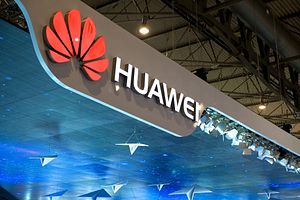Trans-Pacific View author Mercy Kuo regularly engages subject-matter experts, policy practitioners, and strategic thinkers across the globe for their diverse insights into U.S. Asia policy. This conversation with William Plummer – former vice president of external affairs at Huawei for eight years and previously senior executive at Nokia and U.S. Foreign Service Officer – is the 142nd in “The Trans-Pacific View Insight Series.”
Describe the global ecosystem of information communication technologies (ICT) and key issues in ICT governance.
This is a key question to ask because the widespread misunderstanding of the industry is at the heart of many ongoing challenges and tensions, particularly between the U.S. and China.
The modern ICT industry has evolved such that it is utterly transnational, borderless. ICT companies – small, medium, large – all participate in and rely on global supply chains of inputs and services to function.
On the upside, this drives globally-distributed competition, innovation, co-innovation and economic benefit. On the downside, with the re-emergence of China as a global power, geopolitical tensions have increased, and geo-economic and other trade-related matters are increasingly caught up in political gamesmanship, to the detriment of the transnational supply chains that are driving growth and innovation.
Clearly there are legitimate national security – increasingly cybersecurity – concerns on both sides, on all sides. These concerns, however, are increasingly used to justify anticompetitive trade and regulatory policies – and, given the borderless nature of the ICT industry, such trade and regulatory policies are almost universally ineffective. A lose-lose for everyone.
Explain the correlation between global digital governance of 5G and U.S. industrial policy.
5G will not be “governed,” at least no more nor less than 4G and 3G have been. These technology standards define the way that next generation networks will work and interoperate and are the product of dozens, indeed hundreds, of companies from around the world that participate in global standards-setting processes and organizations. These companies pool their intellectual property (committing to license and cross-license on fair, reasonable and non-discriminatory terms) in order to produce open standards that drive cross-vender competition and further innovation.
Explain the impact of U.S. and Chinese innovation and industrial policy on national security.
It’s a difficult balance to achieve. Clearly China is engaged in aggressive innovation and industrial policy, encouraging China-based firms to further establish global leadership. It is a more difficult challenge for the U.S., which increasingly lacks the technological, financial and human resources to verticalize in the manner China seems to be aiming.
And, as stated before, the national (and cyber) security concerns are real, on both sides — as we know well from Mr. Snowden. It is here where the current U.S. policy bent is somewhat puzzling.
If the industry is global, transnational, borderless, then why would not the U.S. company want to encourage U.S. ICT pioneers to continue to integrate cutting-edge technology into global China-based company ICT solutions? For competitive and other (yes, including espionage) reasons, this would seem to be the logical approach, and yet recent U.S. policy seems to be focused on walling off Chinese firms from American inputs. Again, China has the multifold resources to verticalize an ICT industry – why on earth would it be in the U.S. national security interest to promote that?
What is the potential impact of U.S.-China trade tensions on ICT regulatory policy?
Occasionally strident rhetoric aside, the biggest potential and concerning impact is the Balkanization of the ICT industry and supply chains, via regulatory, legislative or, frankly, informal “bans” and “restrictions” against one or another country’s products.
And, it is worth noting, the U.S. is as guilty of such practices as China. If/as the walls go up, there will be a ripple effect across other developed markets, with other markets seeking to promote their national champions.
The result, almost certainly, will be further fragmentation of global supply chains, a setback in ICT innovation, and incompatible verticalized ICT, network and communications solutions that will favor those that can best resource them (see above).
How might the U.S. administration most effectively shape the future of ICT global governance?
Someone has to put the jingoistic Sino- or Ameri-phobic rhetoric on hold.
Both sides are guilty.
Granted, the U.S. side is shaken for having surrendered, to some extent, key elements of ICT leadership, but that is what globalization does, and the U.S. has always been a strong proponent of globalization.
When America entered into the framework of Bretton Woods institutions after the Second World War, it was with a conscious desire to promote global stability, and a conscious recognition that the U.S. would, for some time, bear a significant share of the pain.
America should remember those ideals, stop wallowing in the “what happened?” phase, and seek to drive – to lead – global and consistent technologically and commercially rational solutions to concerns in and around ICT and cyber.
U.S. credibility in this respect has been weakened in recent years due to ham-handed, shoot-from-the-hip policy (China, for what it may be worth, has had almost zero credibility in this space). But it is not too late. America birthed the modern ICT age, and America should not reject — out of nationalistic pique — the role of fostering it further.
































